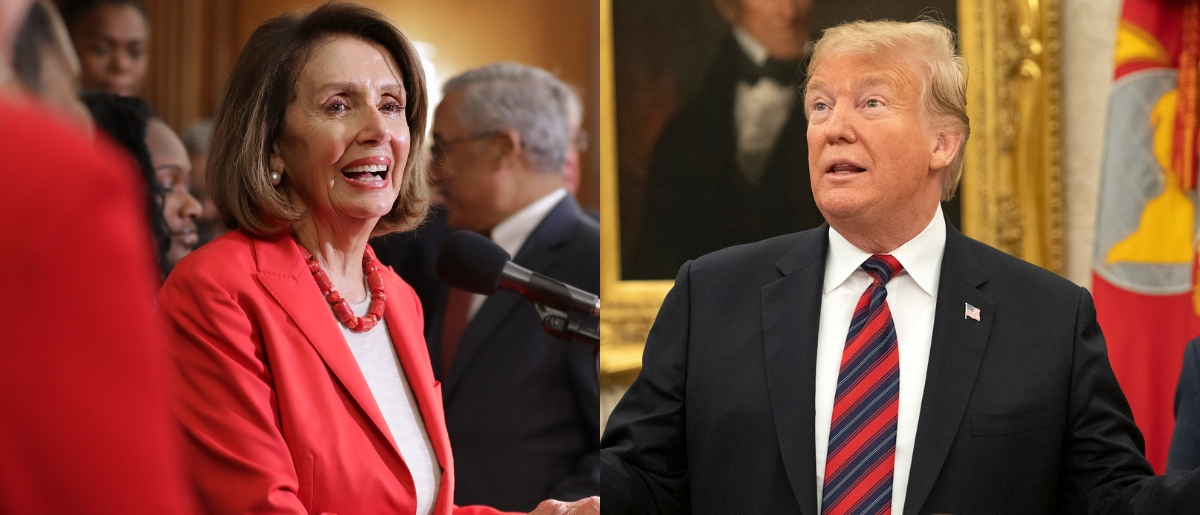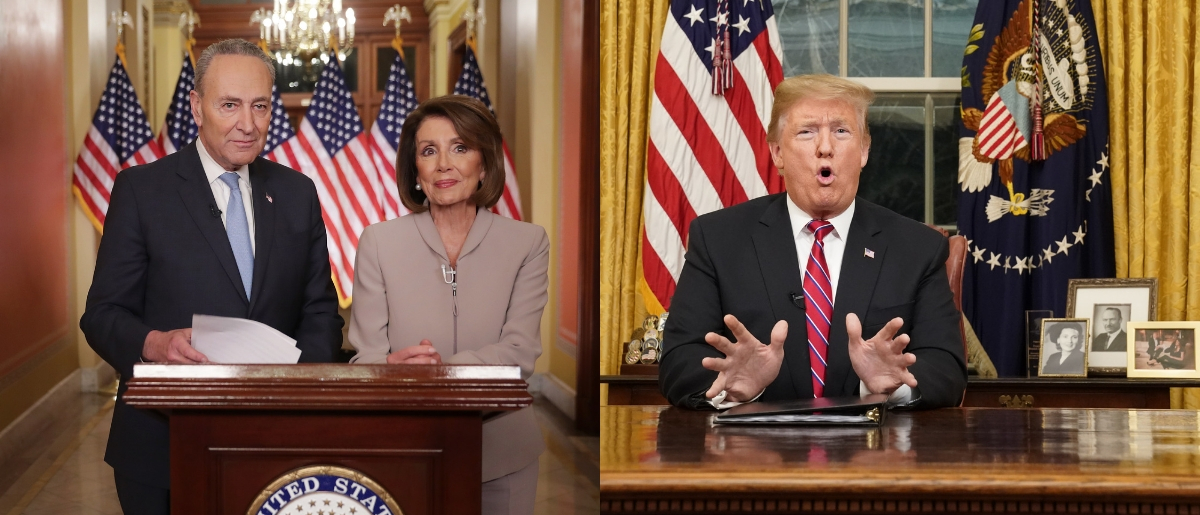The longest lapse in funding for parts of the Federal Government passed the one-month mark Monday with no substantive breakthroughs in negotiations between the White House and Democratic lawmakers.
The two sides remain largely where they were when the shutdown began shortly before Christmas with Democratic lawmakers saying they will provide only $1.6 billion in border wall funding and President Donald Trump demanding $5.7 billion.

House Speaker Nancy Pelosi and President Donald Trump are at an impasse on reopening the federal government. Chip Somodevilla/Getty Images and Ron Sachs-Pool/Getty Images
The White House has offered varying iterations of proposals to Democrats, but nearly all have faltered on their faces in a matter of hours. Three separate meetings between Trump, House Speaker Nancy Pelosi and Senate Minority Leader Chuck Schumer have ended without any deal.
White House officials have expressed growing frustration with Democrats but remain apprehensive that the shutdown will have negative effects on the U.S. economy in the long term. Advisers warned Trump in a recent meeting that if he stuck to his previous pledge to keep the shutdown going for “months or even years,” he risked erasing the narrative of economic growth under his administration, according to one source with direct knowledge. (RELATED: Trump Holds Fast On Shutdown As Advisers Warn Of Consequences)
The president has sought to galvanize public opinion by delivering an address to the nation from the Oval Office, but Democratic lawmakers have remained insistent that no additional funding will be provided.
Nearly 800,000 federal workers remain without a paycheck in the interim period, with workers expecting to miss another scheduled pay period Friday.
Trump sought to break the logjam in a Saturday afternoon address including funding for humanitarian aid, funding for more border patrol agents, $5.7 billion in funding for a border wall, and a three-year legal extension of the DACA and Temporary Protected Status (TPS) programs. Trump’s addition of the latter extension for illegal immigrants and TPS recipients represents his biggest concession in the negotiations so far.

Senate Minority Leader Chuck Schumer and House Speaker Nancy Pelosi offered a rebuttal to President Donald Trump’s national address on the border wall Jan. 8, 2019. Chip Somodevilla/Getty Images and Carlos Barria-Pool/Getty Images
The proposal however shot down by Democratic lawmakers before the speech was even delivered with House Speaker Nancy Pelosi saying it was a non-start. Pelosi and Senate Minority Leader Chuck Schumer instead maintain that Trump must re-open the government before any negotiations can take place over border wall funding.
Pelosi undercut her offer of re-opening the government in her last face to face meeting with Trump when she told the president that even if the government was re-opened that Democrats will still offer up no more than $1.6 billion in funding for the border wall.
Vice President Mike Pence told reporters Saturday evening that the latest offer was an effort to court moderate Democratic lawmakers and circumvent the intransigent Democratic leadership. Despite the White House’s best efforts, however, there has not yet been any public Democratic calls to break ranks with Pelosi or Schumer’s demands, heightening the odds of a more prolonged shutdown.
Acting White House chief of staff Mick Mulvaney, however, told reporters that Trump is still considering declaring a national emergency and using his powers as commander-in-chief to begin wall construction with military funds, but that he prefers a legislative approach.


